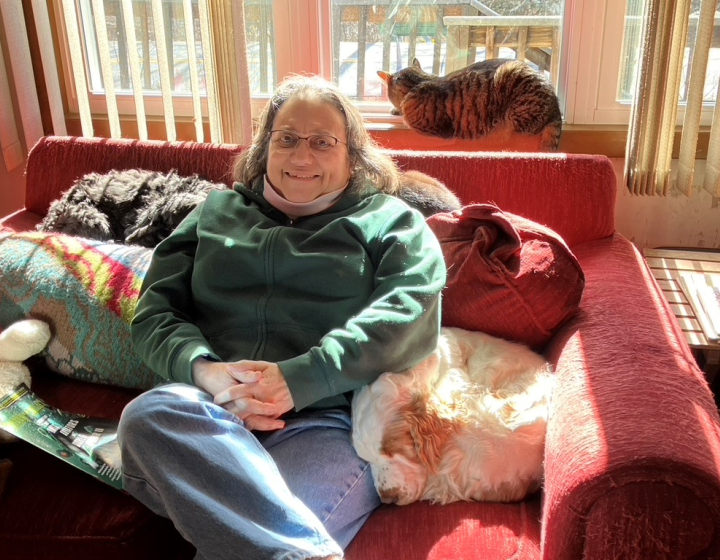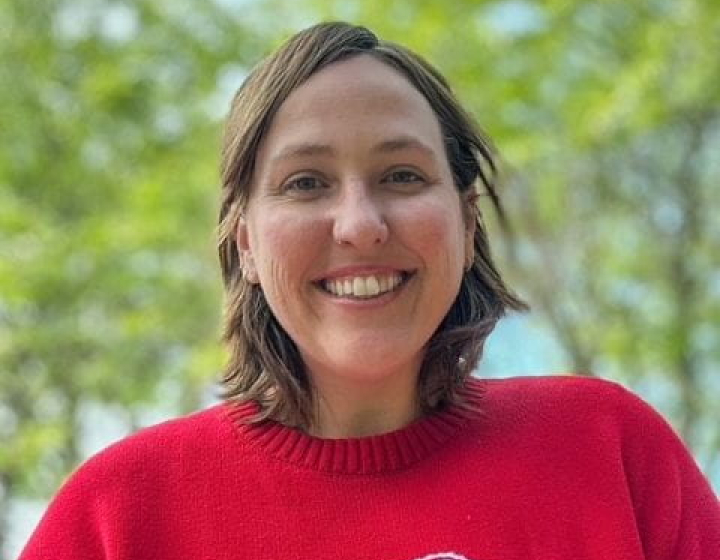Program will protect pets when disaster strikes
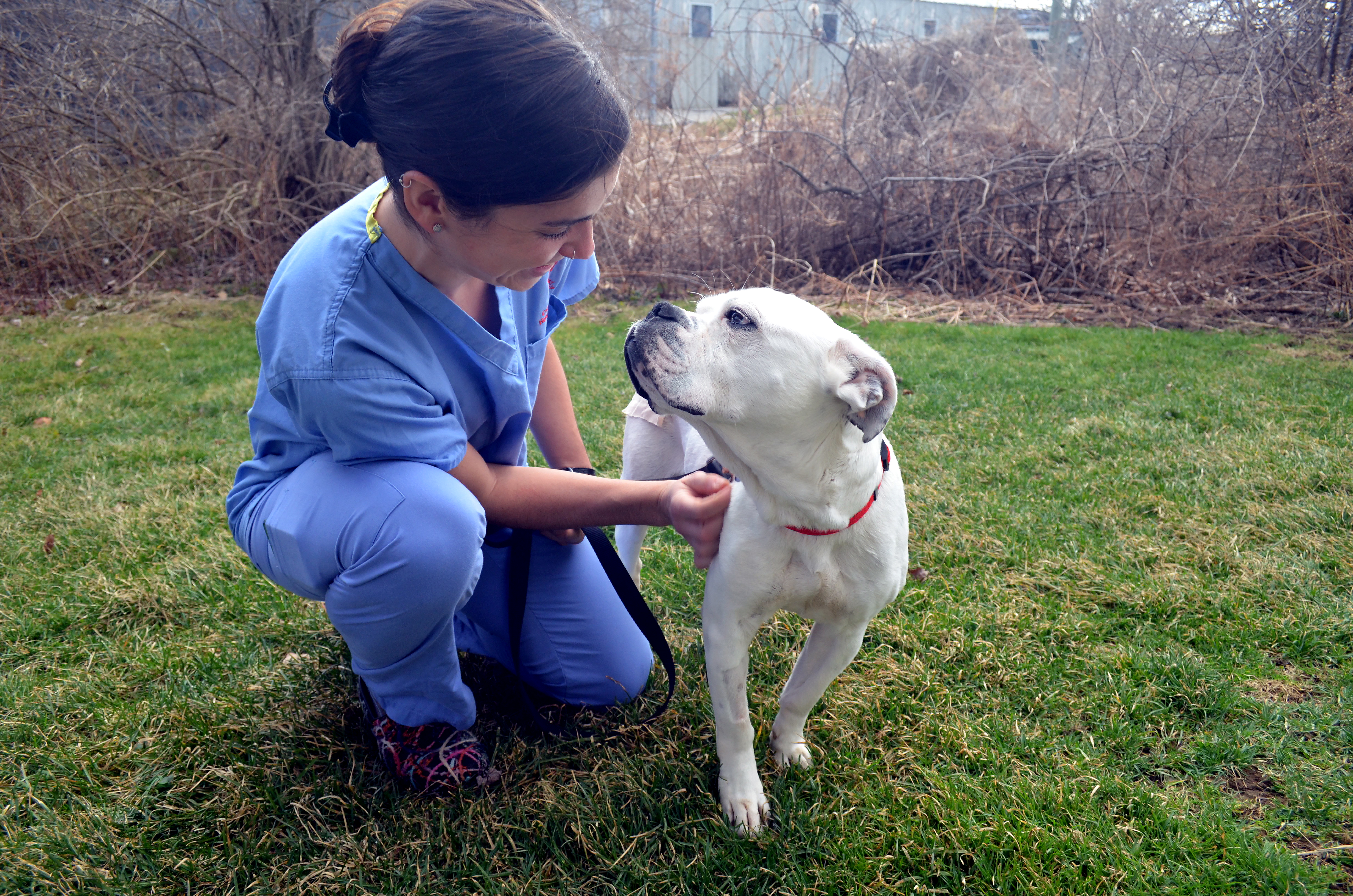
Tompkins County pets can expect expert care even in the most stressful of times thanks to a new project from Maddie’s® Shelter Medicine Program that aims to educate local shelters about natural disaster response.
Funding for this sort of extra training is often a tremendous obstacle for many small, non-profit animal shelters. MSMP received a 2017 Engaged Opportunity Grant to address this need in the Finger Lakes region.
"This grant has given us the opportunity to provide training that is often too expensive for small organizations," said Elizabeth Berliner DVM '03, the Janet L. Swanson Director of Shelter Medicine. "By building on our strong partnerships with area shelters, we can ensure the wellbeing of these animals.”
Natural disasters in 2017 alone have devastated parts of the United States. In October, Hurricane Harvey displaced more than 30,000 people in Texas and hundreds of thousands fled the path of Hurricane Irma in Florida. The fires in northern California that same month burned through 245,000 acres. Many of those affected have family pets. “I think about the animals I grew up with, about the pets of my family and friends,” said program coordinator Sarah Nickerson, “and the question I always come back to is: What do you do? How do you care for them when disaster strikes?”
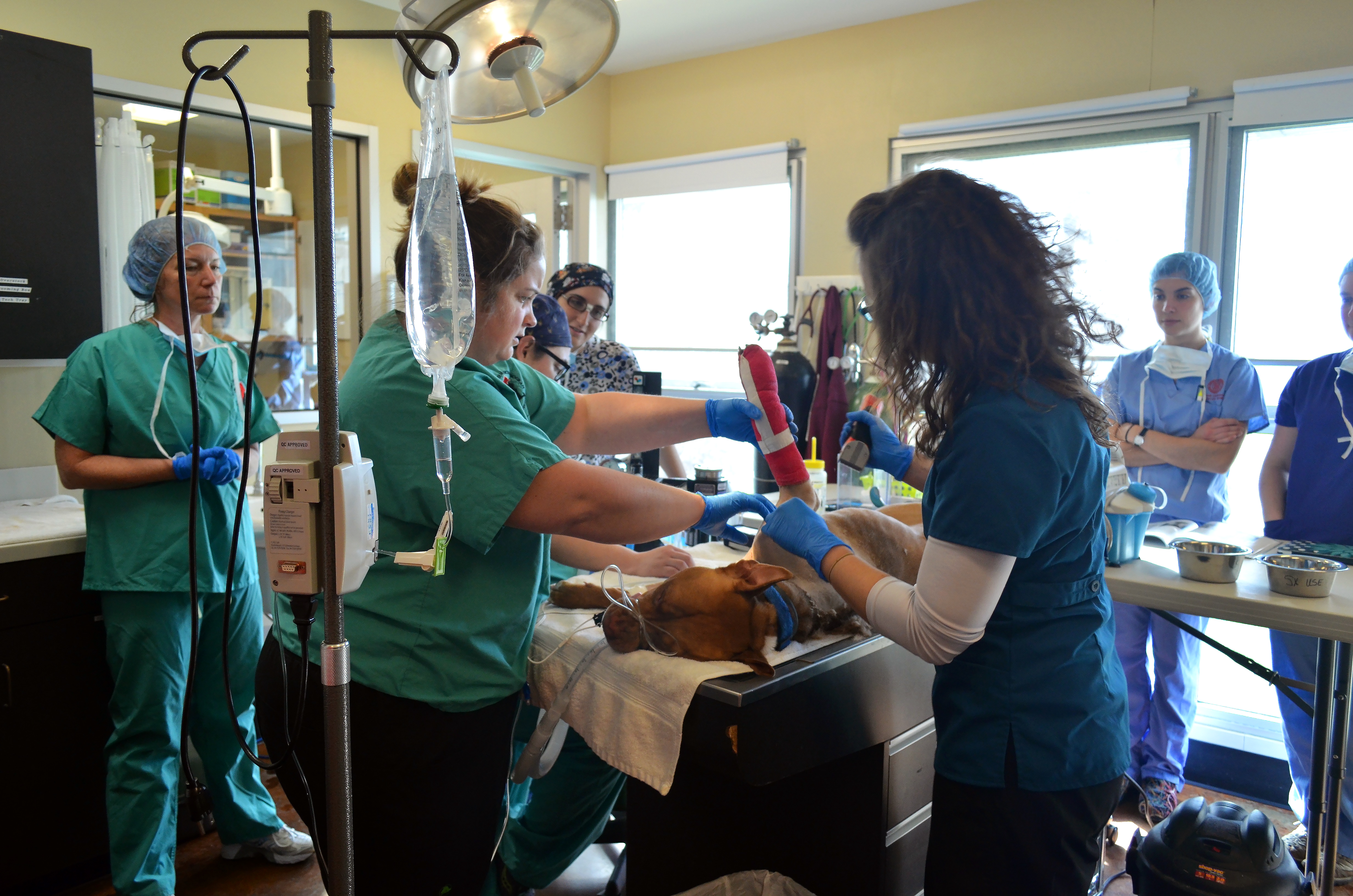
MSMP will make sure to answer those questions as it works with the ASPCA Field Investigations and Response Team to launch a two-day disaster response workshop for students in the College of Veterinary Medicine as well as humane workers at the shelters of Chemung, Schuyler, and Tompkins Counties. The local SPCA and Tompkins County Department of Emergency Response will also participate. The workshop will involve live-action simulations in which staff and students enact best practices for disaster response.
“It was an idea we’ve had for a while,” said Nickerson. “It seems more relevant every day.”
Nickerson anticipates the workshop to launch in March. There are 40 openings in the project, 20 of which are reserved for MSMP and local shelter personnel and 20 for students in the College interested in shelter medicine. Once students and staff have this training, they can then go into their own communities and share the information.
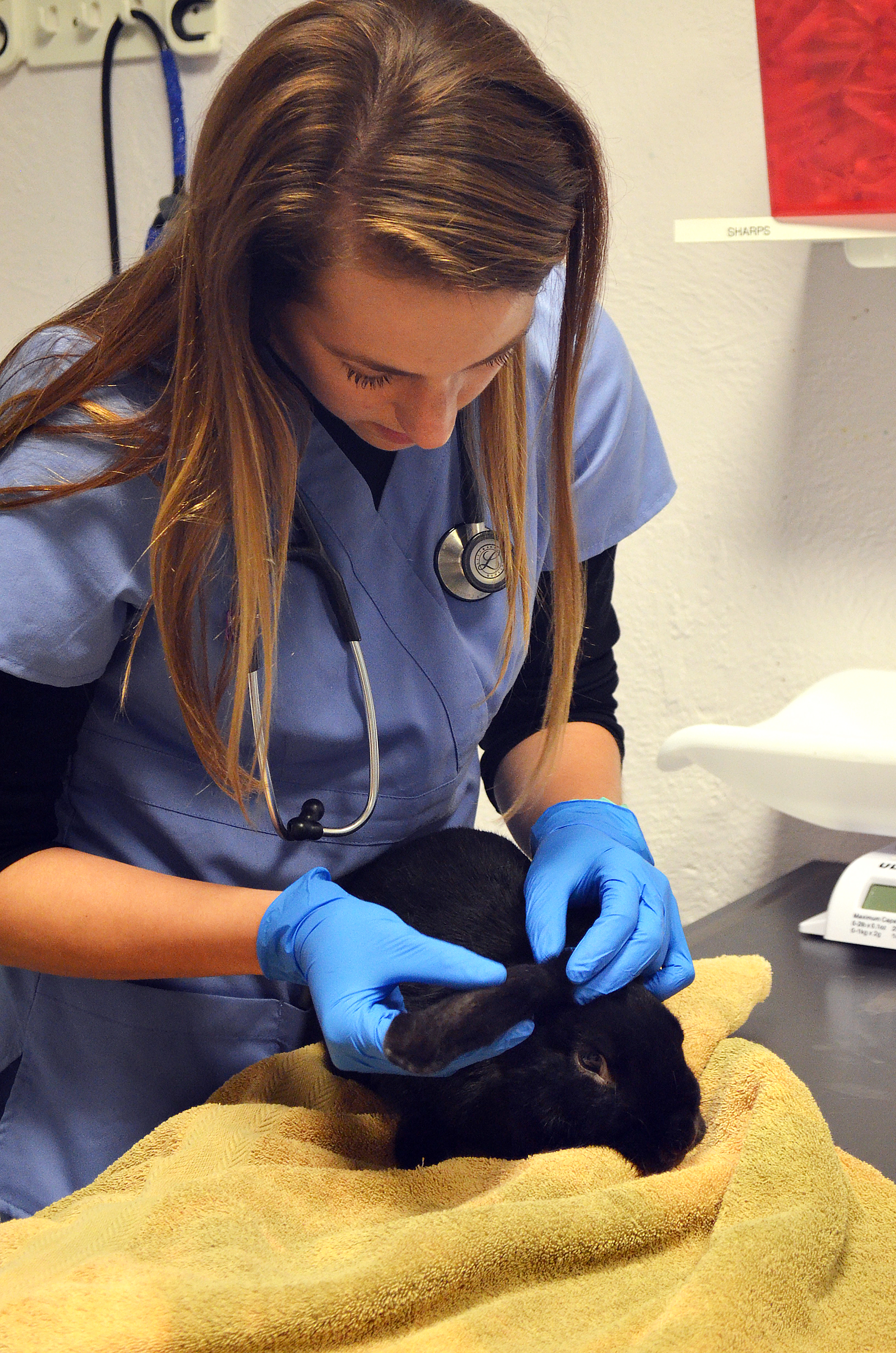
“By providing this opportunity to our veterinary students, we are setting the stage for ongoing work in this and other communities around disaster preparedness,” said Berliner.
MSMP intends for this project to encourage parallel strategies in neighboring counties. “That way there will be communication so when something does happen, it’s not as chaotic and the community feels assured that their animals will be safe,” said Nickerson.
The first workshop will focus on companion animals, and MSMP intends to develop the project into a course for students next year that will culminate in a two-day workshop similar to the one happening this March.
They also hope to expand to farm animals in future years, given the high density of farms in the Finger Lakes. They want shelters to be prepared for every possibility.
“They’ll be the ones people rely on when disaster strikes, and if they don’t have the training, they can’t take care of our pets,” said Nickerson.
By Melanie Greaver Cordova



